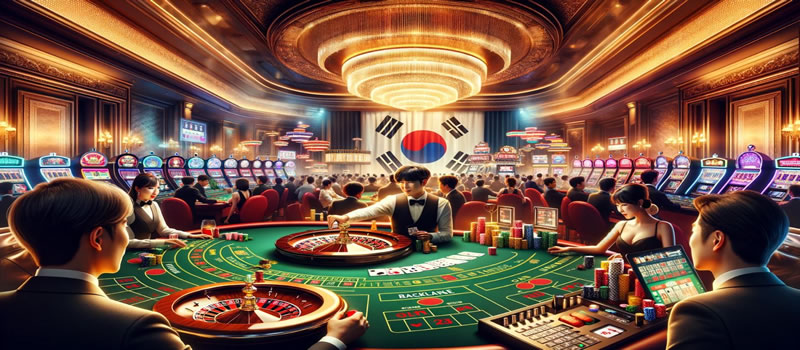The allure of the jackpot is so strong that individuals across different backgrounds are drawn to it. It presents a nearly irresistible pull is the possibility of live casinos winning a sizable quantity of money through gaming at casinos, participating in lotteries, or other games of chance. For countless individuals worldwide, the dream of achieving sudden wealth and gaining financial independence in an instant is an alluring one. Several psychological factors play a role in the jackpot's attraction.
Key Takeaways
- The allure of the jackpot: The thrill of winning big entices people because of the potential for transformative gains.Dopamine and the jackpot effect: The brain's response to potential rewards, such as winning a jackpot, is driven by the release of dopamine, creating a feeling of pleasure and motivation.Risk and reward dynamics: Our draw to jackpots stems from the combination of risk with the possibility of reward, activating the brain's reward system.Optimism and hope in jackpot pursuits: The chance of a big win impacts our mindset, fostering a sense of hope and positive expectation for the future.Social and cultural influences: The jackpot’s appeal to us is shaped by social norms, cultural expectations, and peer pressure.

The possibility of striking it rich offers the promise of a thrilling new life free from the routine of day-to-day living. Lots of individuals are driven to chase after huge jackpots because they find great resonance in the idea of taking a chance & possibly coming out on top. The thrill of placing a huge bet or the suspense of anticipating the outcome are just two examples of how people are drawn to jackpots because they tap into the natural human desire for excitement and risk. Dopamine's Role in Anticipating Wins. Dopamine is critical in our draw to jackpots, which is why jackpots are irresistible.
A neurotransmitter called dopamine is released in reaction to enjoyable moments like eating delicious food, taking part in enjoyable activities, and yes, winning big. Dopamine plays a crucial role in the brain's reward circuits. Our brains release dopamine in anticipation of a possible reward, like winning the lottery, which feels great and pushes us to seek more rewards. The dopamine-driven pursuit of huge wins. We are strongly motivated to seek out big wins by the strong attraction that is created when dopamine is released in response to possible rewards.
The possibility of winning a massive prize floods the brain with dopamine, which produces an irresistible rush and excitement. This dopamine surge that fuels our craving to take risks in the hopes of striking it rich & pulls us towards jackpots. Addiction and compulsive behavior: the dark side of dopamine. The brain floods dopamine when one is expecting great success, which can create an extremely addictive feeling of excitement and anticipation. Gambling addiction often stems from this, which can be explained by the role dopamine plays in our draw to jackpots. A powerful psychological force that can result in addiction & a loss of self-control is created when dopamine is released in response to big win potential.
Our natural desire for risk and reward is closely tied to the the lottery's attraction. The possibility of striking it rich is a risky proposition that appeals to our innate yearning for thrills and experiences. Our interest in jackpots is fueled by the rush that comes with going after big victories. Many people are motivated by the idea of taking a risk and possibly earning huge rewards, which motivates them to take chances in the hopes of winning the ultimate lottery prize. Our evolutionary past as early humans may also be used to explain the role that risk and reward play in attracting us to jackpots.
Taking chances has been crucial to human survival throughout history because it often determined obtaining essential resources and going hungry. Because our ancestors found this behavior beneficial in securing resources, it is ingrained in our brains to seek out high-reward risks. This natural inclination for risk continues to influence us today, causing us to be drawn to jackpots and urging us to take more risks in the hopes of hitting big.
Risk and reward drive our pull to jackpots, which connects with our need for independence and autonomy. The chance to become wealthy presents an opportunity for limitless living and on one's own terms. The opportunity to take a risk and possibly making huge gains taps into our innate need for independence and self-determination, which drives us to chase big rewards in the quest for financial freedom. A huge part of jackpot allure is the optimism and hope that big wins inspire. The chance for a massive win sparks hope for a better future, which bolsters our confidence and drives us to go after big wins.
It is hard to ignore the sense of hope that comes from the idea that one lucky moment has the potential to transform our lives. The potential for great wealth draws on our desire for optimism and hope, encouraging us to take chances in the quest for future prosperity and financial stability. The psychology of optimism and hope also has a significant impact on how we think about going after big victories.
Our optimism is fueled and we are motivated to pursue big wins despite the odds when we have the possibility of winning the jackpot. This sense of hope and excitement can create addiction-like behaviors. We gamble for financial freedom because we have an unyielding optimism that one fortunate break could change our future. The influence of optimism & hope on our thinking when it comes to going for big wins also relates to our innate need to be in charge of our own lives. Our optimism is fueled by the possibility of winning big, which drives us to gamble in the search for financial freedom and freedom from financial constraints. It is impossible to overestimate the power of social and cultural pressures on our attraction to jackpots.
We are continuously exposed to messages that reaffirm the appeal of striking it rich, from the popular media's portrayals of sudden wealth to social pressures to achieve financial wealth. Our view of jackpots are shaped by cultural and social messages, which fuel our jackpot addiction and encourage us to gamble in the quest for financial security. Social pressure and social norms are just two more examples of how cultural pressures shape our craving for jackpots. Chasing big wins is regarded as an admirable, glitzy, and thrilling endeavor in many social circles.
Individuals might gamble more in an effort to win approval or validation from others by experiencing the pressure to keep up with friends or coworkers who have made money through gambling. The human desire for recognition is further evidenced by the societal influences on our attraction to jackpots. The reason we crave jackpots and pushes us to gamble in the hopes of winning big is the chance for wealth and fame, which can further improve one's social status. The Addictive Nature of Jackpot Pursuits. Dopamine's influence on big wins can create a dangerous cycle that causes individuals to take on more risk in the hopes of winning big, frequently at great personal expense.
Chasing losses can result in a detrimental cycle that can devastate someone's finances and general well-being. Jackpots' Dark Side: Mental Health and Relationships. Chasing huge wins can take a toll on relationships and mental health in addition to financial ruin. People who develop an addiction to gambling frequently struggle with ever-growing debts & other financial difficulties, which can create anxiety, depression, and feelings of despair.
In addition, gambling for jackpots can damage personal relationships, leading to isolation & isolated. Support and Awareness for Addicts. The dangers of going after large winnings make it clear that people who may be experiencing compulsive gambling behavior need compassion and support.
Society must recognize the risks of gambling and offers assistance to those in danger of addiction. By doing this, we can endeavor to establish a setting that is safer and more encouraging for those struggling to resist the lure of the big win. Create healthy gambling habits to help people manage the psychological effects of jackpot pursuits.
Limiting the time spent and money spent on gambling can prevent compulsive habits and reduce the risks in gambling for big wins. For those who may be battling addictive behaviors linked to chasing jackpots, getting help from friends, family, or trained professionals can be hugely beneficial. Individuals can protect themselves from falling into addiction by adopting healthier coping strategies for managing stress and anxiety.
People can discover healthy ways to manage their stress without turning to high-risk gambling activities by staying active, meditating, or pursuing relaxing hobbies. To sum up, individuals of all backgrounds are drawn to the jackpot because of its strong allure. Our attraction to big wins is fueled by a variety of psychological factors, ranging from the release of dopamine in reaction to possible rewards to our natural craving for risk. However, in order to prevent developing compulsive gambling behavior patterns, individuals need to recognize the dangers connected to chasing jackpots and develop strategies for managing the psychological impact of these pursuits.
Individuals can still enjoy the thrill of jackpots without giving in to the negative effects of compulsive gambling behavior by comprehending the psychology underlying our attraction to jackpots & adopting positive, healthy gambling habits.
FAQs
Why are we drawn to huge jackpots?
The psychology behind the attraction to winning big jackpots stems from the brain's reward system. When we anticipate the possibility of winning a large sum of money, our brains release dopamine, a neurotransmitter linked to joy and reward. This surge of dopamine creates a feeling of excitement and creates hope, which can be highly addictive.
What keeps people playing after they lose?
Gamblers keep playing despite losses due to the effect of near-miss events. When individuals come close to winning but ultimately fall short, it creates a dopamine boost similar to that of a real win. This close-call event can create a sense of hope and drives them to keep playing, despite previous losses.
What role does social influence play in the attraction to winning big jackpots?
Social factors are key in our craving for jackpots. The visibility of jackpot winners in the public eye and among friends builds social validation, leading individuals to think winning is possible and desirable. Additionally, the joy and celebration around big wins can motivate others to start gambling.

What are the downsides of craving jackpots?
The attraction to winning big jackpots can have negative consequences, particularly when it becomes compulsive or addictive. Excessive gambling in pursuit of big wins can cause financial problems, damage personal relationships, and mental health issues. Moreover, the craving for jackpots can create false hope and skew one's view of odds.
How can individuals manage their attraction to winning big jackpots in a healthy way?
You can keep jackpot cravings under control in a healthy way by limiting time and money spent on gambling, practicing responsible gaming, and seeking support if they feel their attraction to jackpots is becoming problematic. It's important to approach gambling activities with a balanced perspective and to prioritize enjoyment and entertainment over the pursuit of large wins.